Digitizing MSMEs: Kirana stores in Nepal
Author
Manish Joshi
National Inclusive Digital Economies Consultant, UNCDF Nepal
manish.joshi@uncdf.org
Tags
Timeline of the project

Kirana stores – mom-and-pop shops – make up nearly 90 percent of Nepal’s retail sector. Recently, digital financial services (DFS) have become popular in Nepal, but Kirana stores that form the backbone of the retail industry remain excluded from the digital ecosystem. UNCDF supported Khalti, a DFS provider, to build sustainable and scalable solutions that allow Kirana stores to efficiently order, pay and deliver everyday essential items.
MSMEs in Nepal
According to the National Economic Census, most enterprises in Nepal are engaged in wholesale and retail trade activities – the final steps in the distribution of goods, which also includes the repair of vehicles.
Retail and wholesale establishments are largely micro, small and medium-sized enterprises (MSMEs) that sell food, beverages and other everyday essential goods. The Census presents a distribution of retail and wholesale businesses disaggregated by the number of people they employ.
Businesses employing less than 10 people constitute more than 99 percent of all establishments in the wholesale and retail trade sector. Street-vendors usually belong to one-person enterprises representing daily wage-earners. Outlets with two or more employees are typically family-run, traditionally managed businesses, operating out of small shops and engaged in various forms of retail business activities.
As COVID-19 continued to unfold, these non-specialized MSMEs felt the effects and needed immediate digital support. The pandemic limited the numbers of customers at physical shops with continued lockdowns and precautionary restrictions. At an individual level, it is not feasible for these MSME retailers to employ and train delivery staff and then continually monitor their movements. Furthermore, MSMEs do not have any informational or promotional campaigns in place to attract customers.
The pandemic has also created a shift in purchasing patterns as the local customers of these Kirana stores were increasingly relying on them for daily necessities, in a bid to avoid travel and lengthy check-out queues. Kirana shops perform a vital service in helping people cope during these times and exchange cash on a day-to-day basis, but, as a result, their owners are exposed to a high risk of contracting COVID-19. Also, these shops and shopkeepers could potentially transmit the virus, leading to community spread.
An e-commerce platform for Kirana stores
Khalti was launched in January 2017, with the vision of positioning itself as synonymous with digital payments in Nepal. Khalti has an online marketplace inside the Khalti App, called the Khalti Bazaar. Khalti Bazaar allows enterprises and entrepreneurs to open a storefront for selling their services, products and subscriptions. Using the Sellers Portal, sellers can set up their online store and use it to edit and update their offered products and services. To provide a wholesome shopping experience, payments for purchases can be made through multiple options such as wallets and banks on the Khalti’s payment gateway. However, in this model, delivery should be arranged by the merchants themselves, which was not feasible for the Kirana stores.
In response to the pandemic, Khalti modified the interface of Khalti Bazaar – an in-app multi-vendor online marketplace – to include everyday convenience and necessity products from local Kirana stores. Instead of a digital storefront in Khalti Bazaar, participating retailers are now linked as fulfilment agents for orders placed through either the Khalti Bazaar app or the web-based Nepali Cart.
In this model, customers can place an order via the mobile app or web-based platform. These orders are transmitted to participating Kirana stores. The first shop to confirm the availability of the ordered items is provided with the sale. The service is linked with digital payments and door-to-door delivery to provide the optimal customer experience. As a proof-of-concept intervention, the primary objective of this project is to pilot-test and assess the efficacy of this model to positively impact MSMEs. The model was developed and tested within the Kathmandu Valley and was refined continuously throughout the project.
This model has connected customers with local and reliable suppliers, allowing them to receive necessities at their doorstep. Furthermore, integrated digital payments are convenient for customers, lead to formal savings for businesses and reduce exposure to COVID-19 for everyone by limiting the use of cash.
Spotlight on entrepreneurs
Sita Store
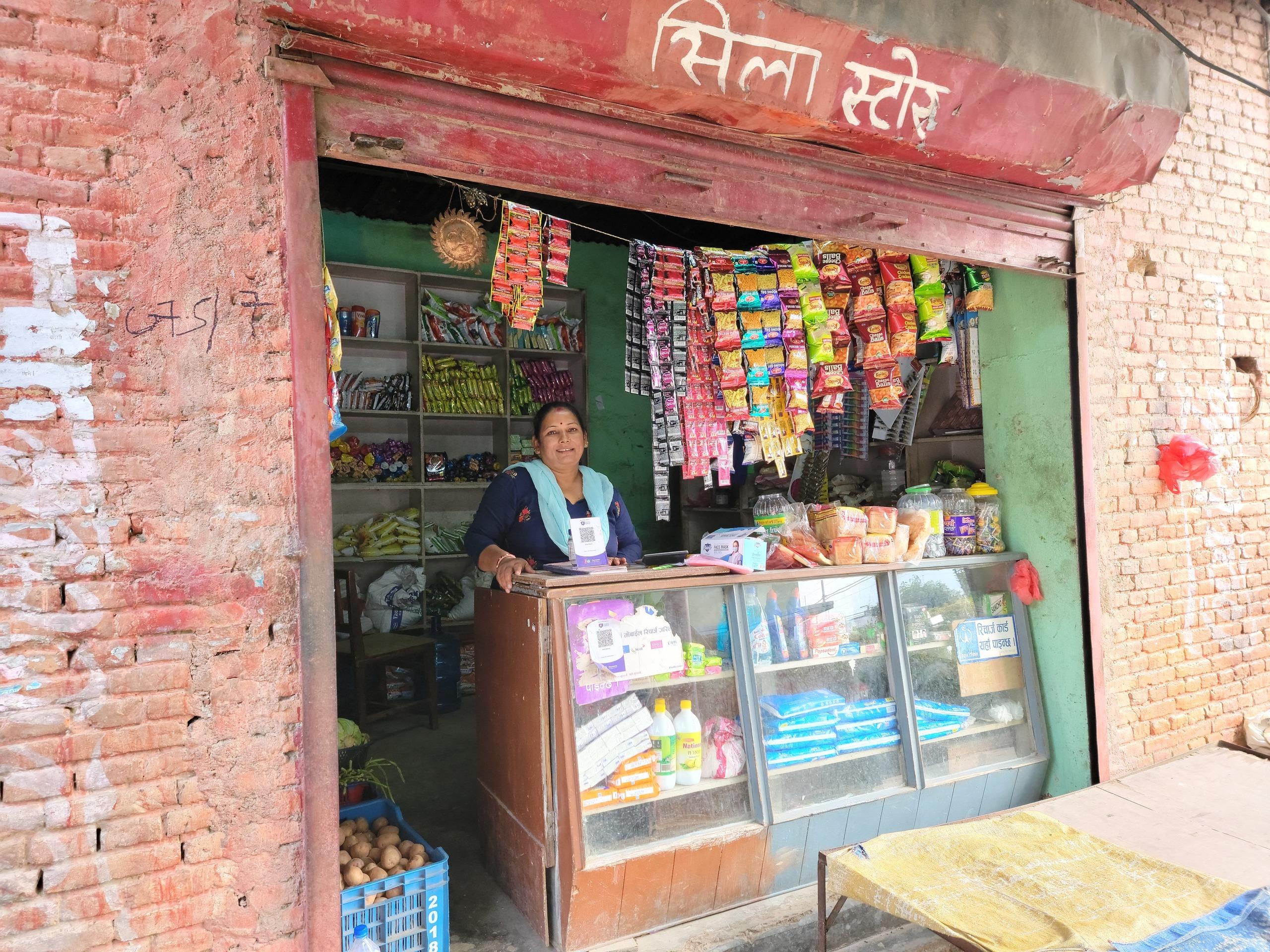
Shila Rijal at her store @ UNCDF
Shila Rijal is a 43-year-old woman who runs her Sita Store, a general store in Lalitpur, near Kathmandu. Shila’s husband is abroad for work, and she lives with her daughter, who assists her in the store. Shila has been running this store for the past 12 years, and she relies on it for more than 60 percent of her total income.
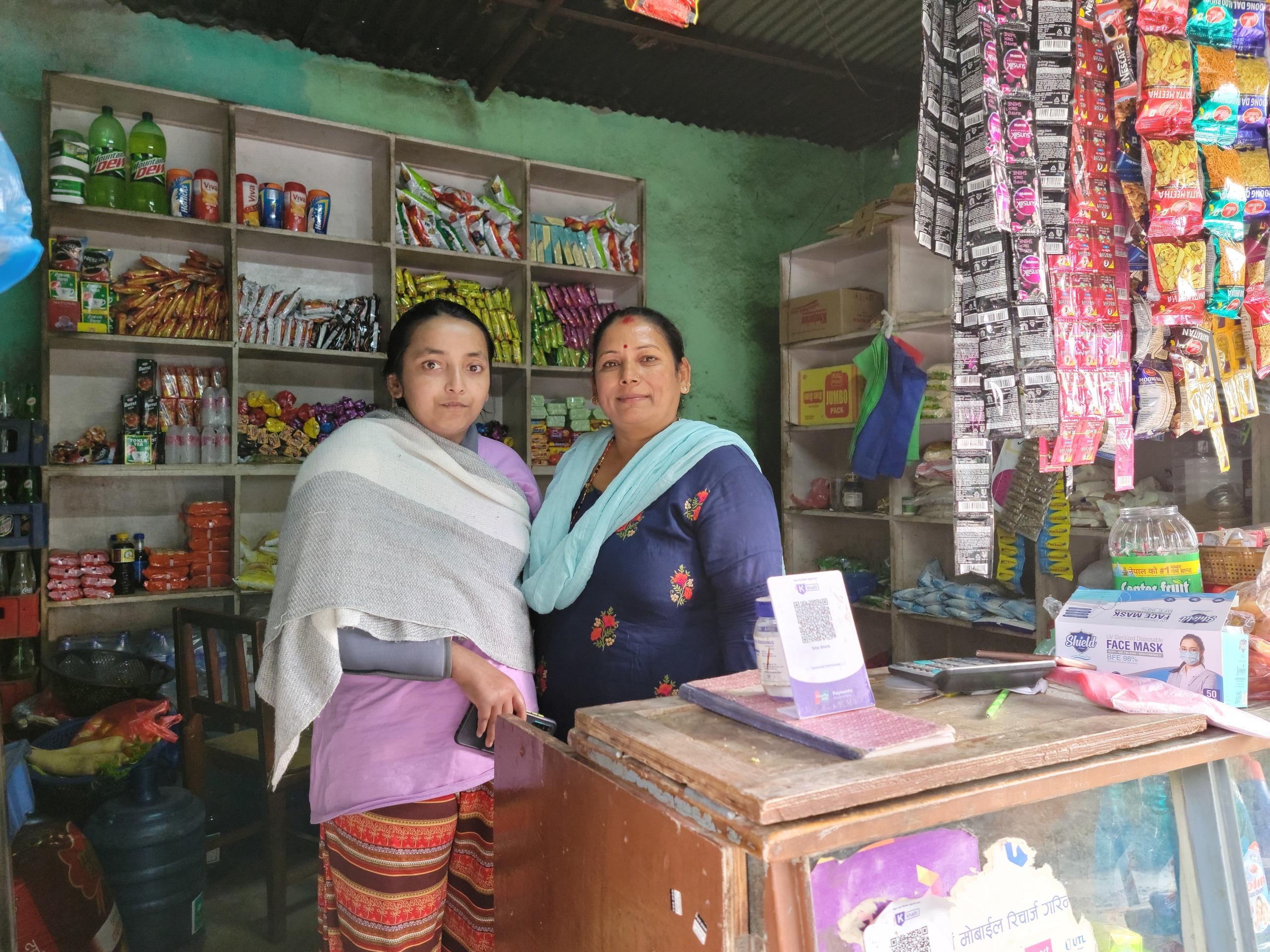
Shila Rijal with her daughter, who helps her at the store @ UNCDF
Nepal entered the COVID-19 lockdown in March 2020, forcing stores like Shila’s to close. During the lockdown, Shila struggled to pay monthly installments on her home loan. Without income generated from her store, Shila had to adjust her budget and rely on the money sent by her husband to run the household.
During the lockdown, Khalti Bazaar representatives reached out to Shila to discuss the online platform. As an owner of a small general store, it would be difficult for Shila to independently operate an e-commerce service. And yet the Khalti Bazaar platform appealed to Shila because they provided free delivery, pick-up and drop service and easy packaging. Joining the Khalti Bazaar platform helped Shila reopen her store to provide services to existing and new customers.
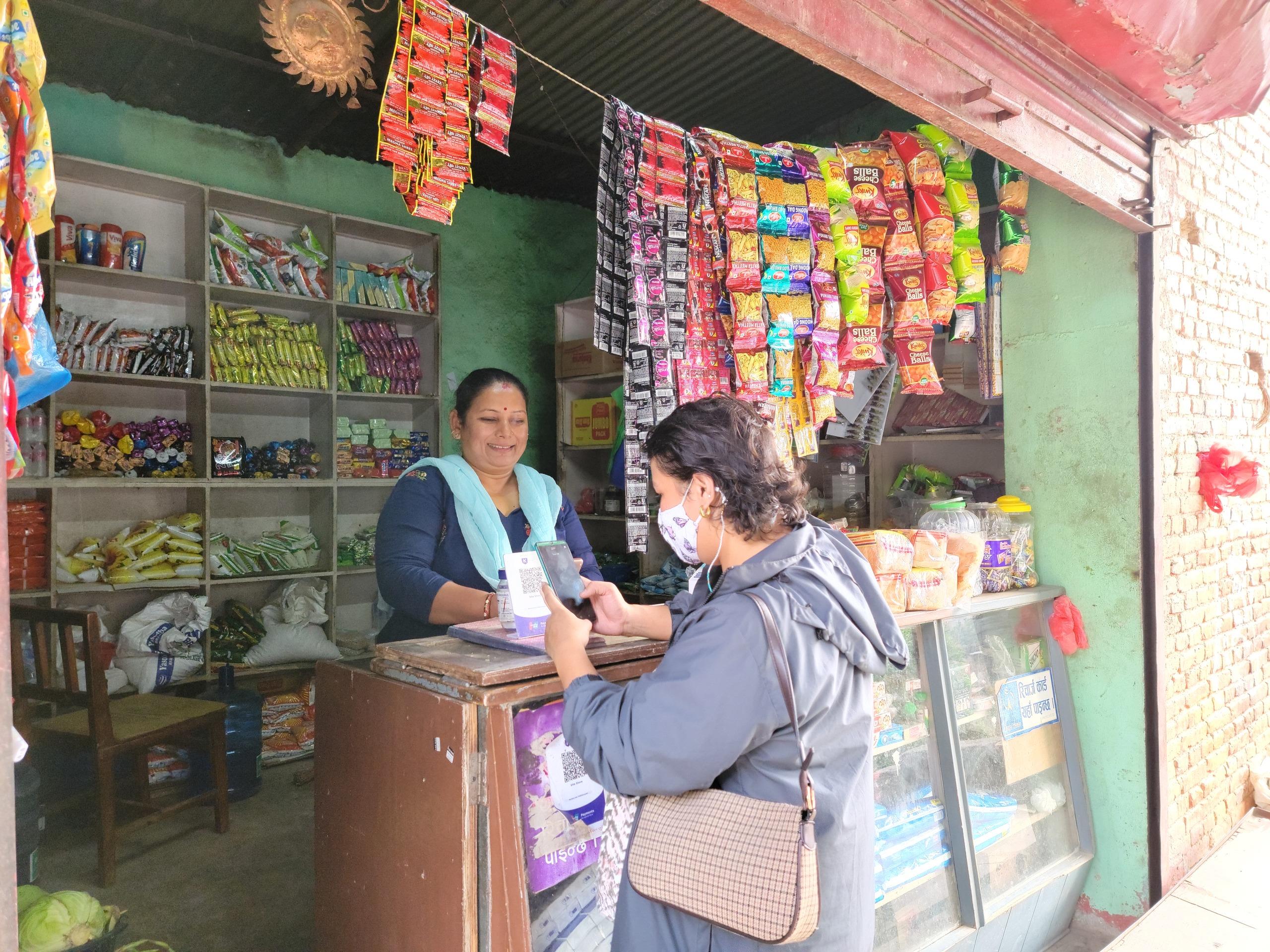
Customer making payment with Khalti QR-code @ UNCDF
At first, Shila encountered challenges on the platform – sometimes she did not know that she had received an order. However, with the help from Khalti Bazaar representatives, she could get information about the orders, check the delivery status of the products and prepare for pick-up. Within a week after a sale, she receives the money.
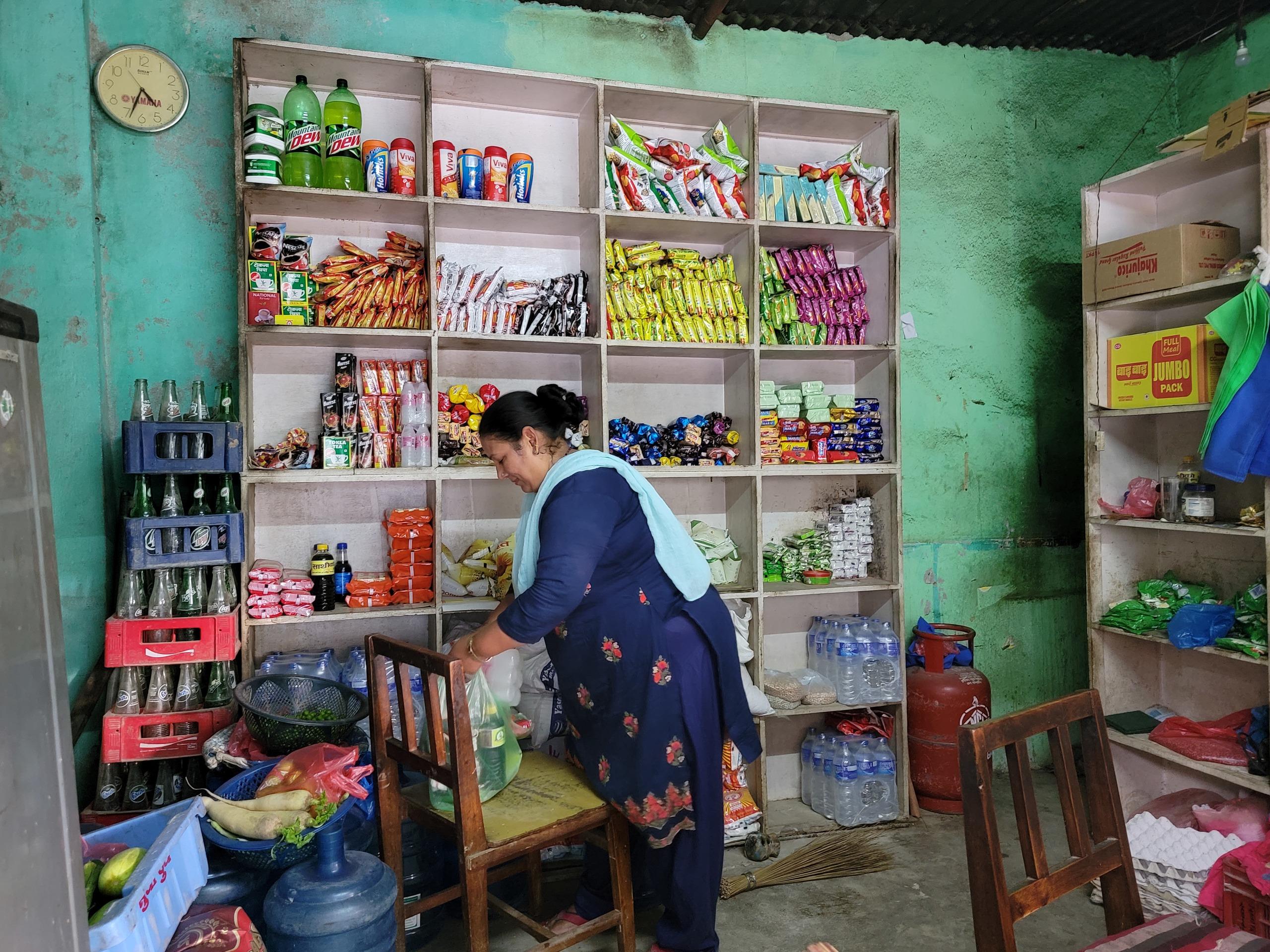
Packing the goods for delivery @ UNCDF
Khalti Bazaar representatives also helped her open the Khalti Pasal digital wallet to sell recharge cards, pay her bills and use digital financial services. She found opening a Khalti Pasal account effortless compared to other platforms and received more cashback with Khalti Bazaar.
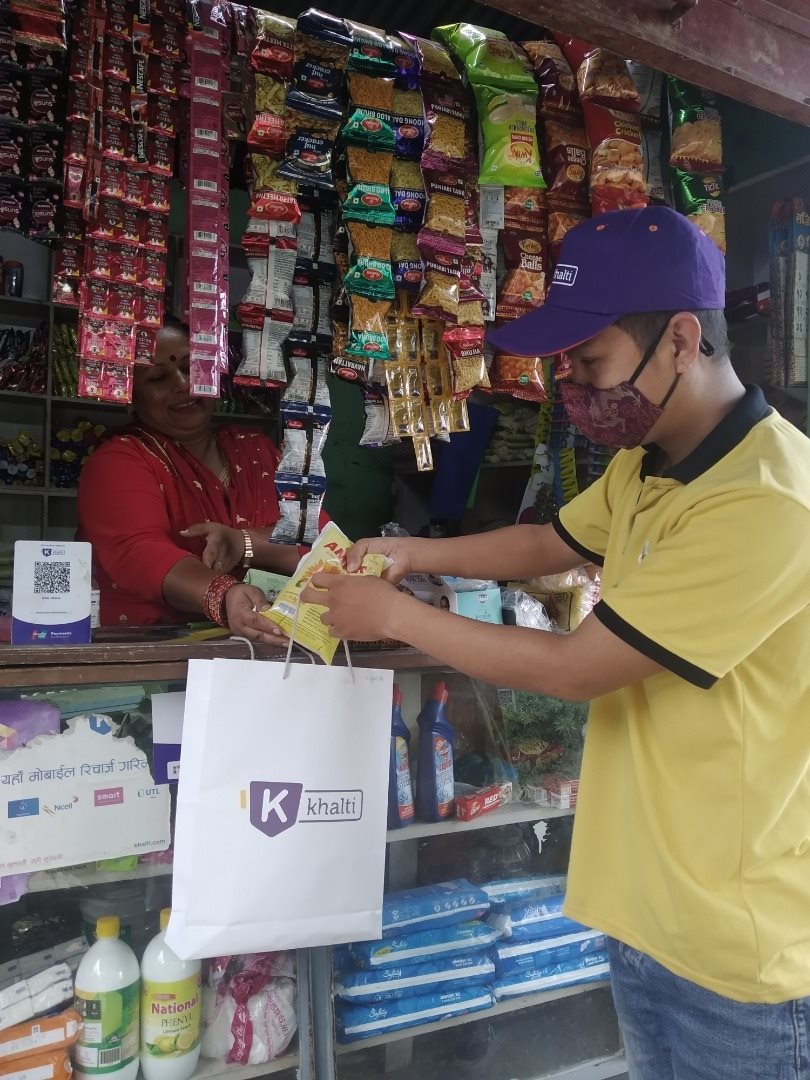
Khalti Representative picking up orders @ UNCDF
The Khalti platform helps Shila sell products and support the growth of her business. Since she has started using the platform, her sales have increased as she provided the service during the lockdown. According to Shila, her sales were very high during the festive seasons. She also made additional revenue from the digital transactions that helped her local neighborhood pay their utility bills online avoiding physical contact during COVID-19.
Daughters’ Home Achar
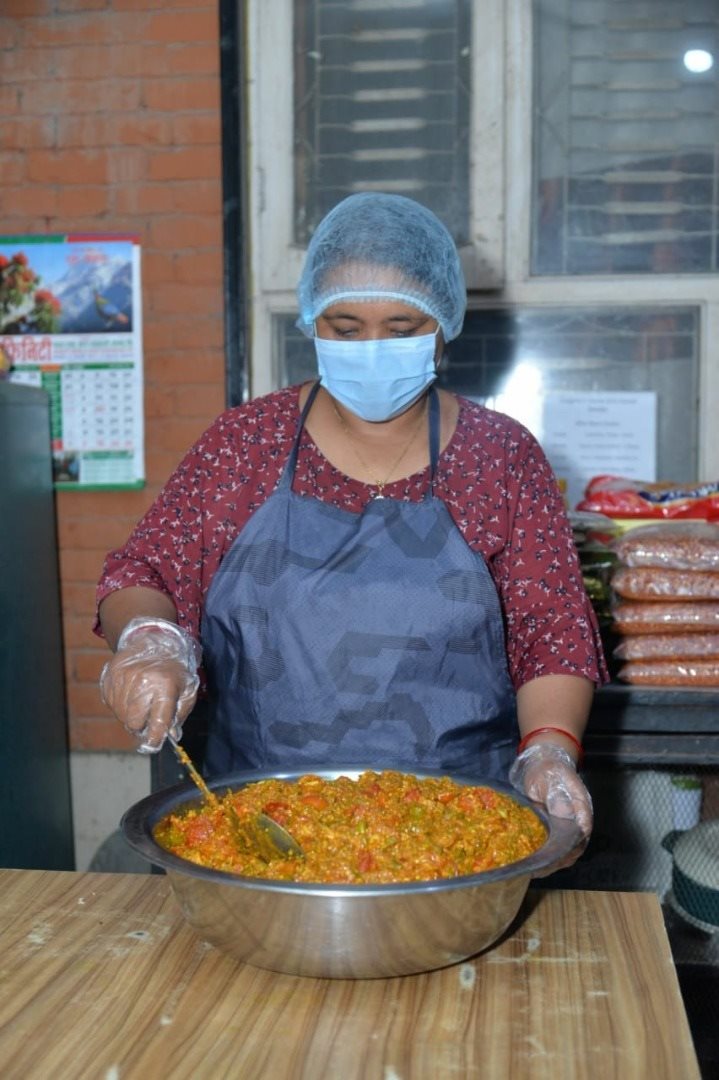
Pooja making pickles @ Daughters' Home
Pooja Sharma Joshi is a 44-year-old woman who has been running a homemade pickle business Daughters’ Home Achar since 2019 in Lalitpur. She lives with her husband and two daughters.
For 14 years, Pooja had been running Daughters’ Home Girl Hostel in Kupondole, near Kathmandu. The hostel was the primary source of income for her household, but due to the pandemic, she had to shut down the hostel and face financial difficulties.
To address her financial challenges during the lockdown, Pooja decided to run Daughters’ Home Achar, a pickle business, using a family recipe as inspiration.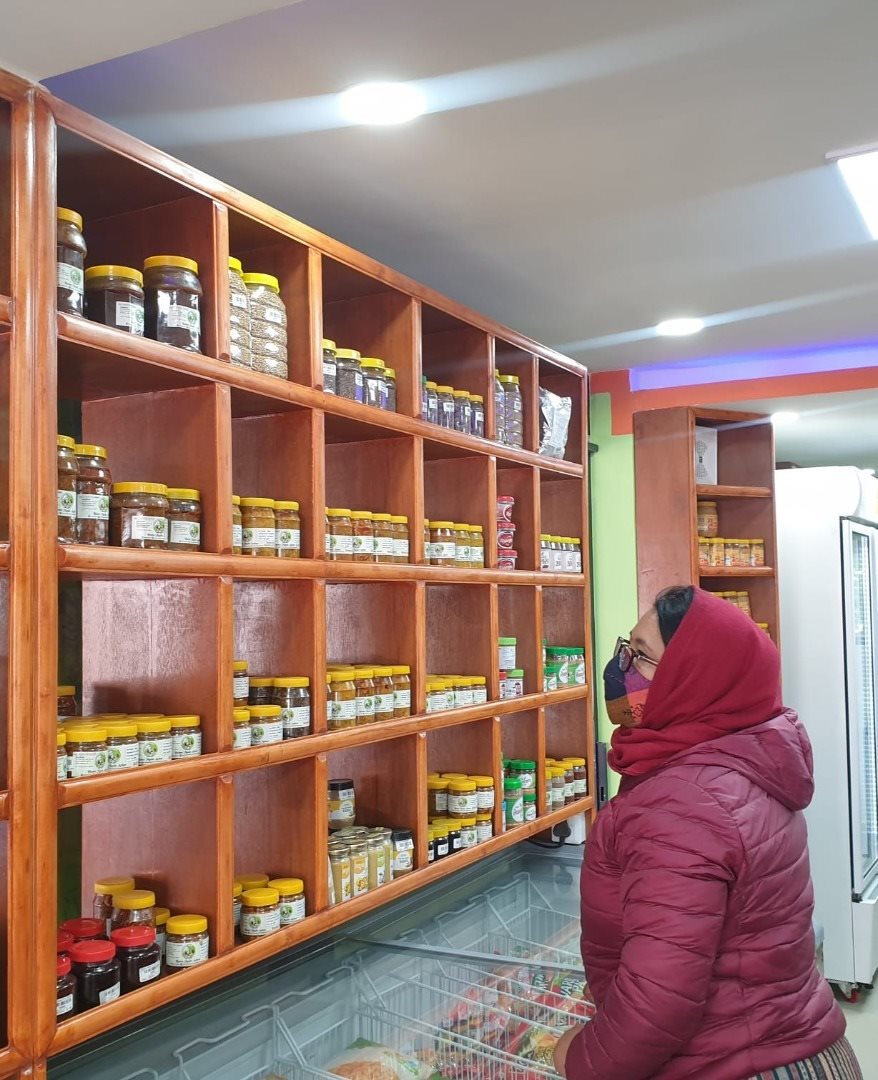
Customer shopping for pickles @ Daughters' Home
Once she was ready to sell the pickles, she faced product delivery problems with other delivery companies. She then found out about the Khalti Bazaar platform that provided her with an easy and convenient delivery service.
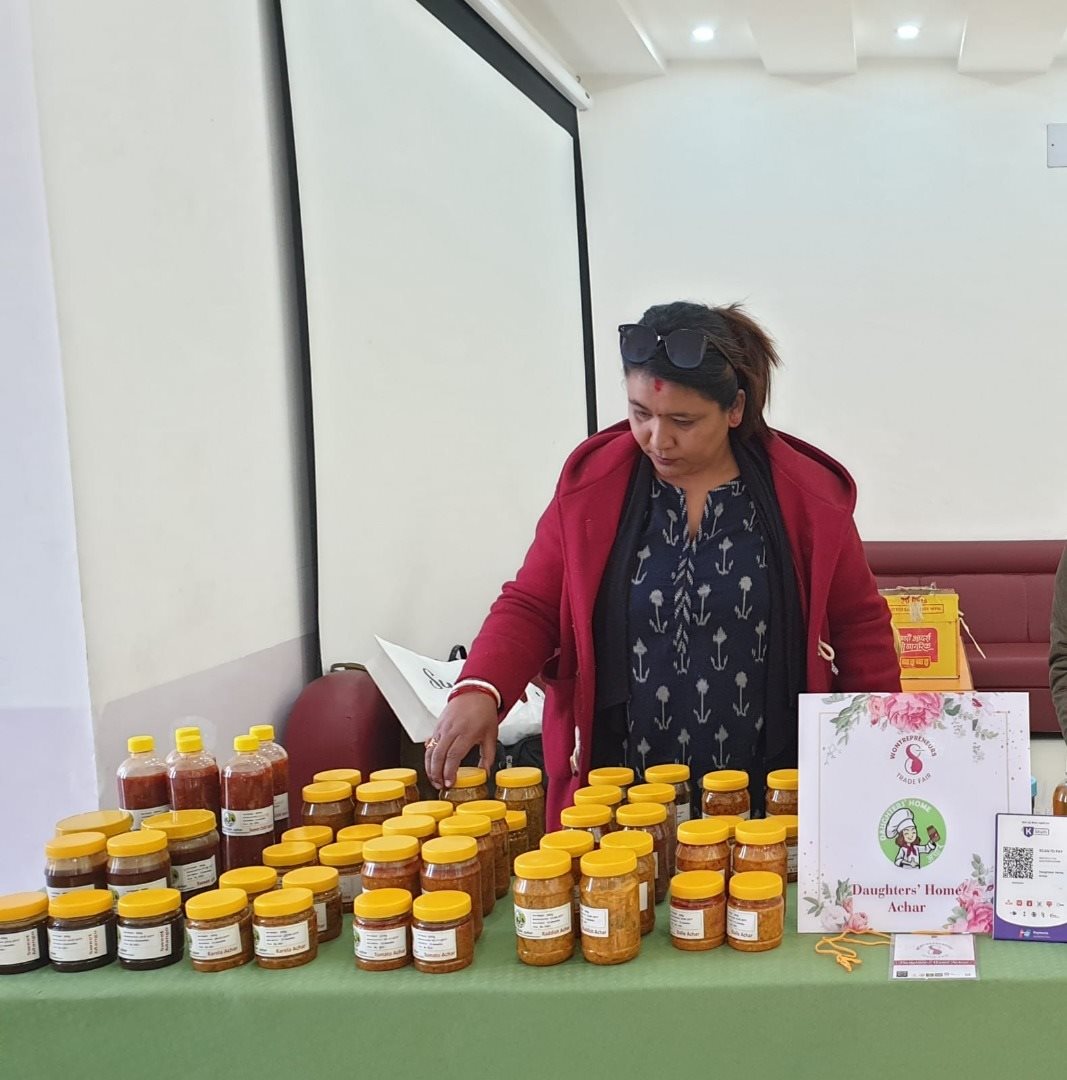
Selling pickles at a trade fair with Khalti QR-code payment system @ Daughters' Home
The Khalti Bazaar platform has helped Pooja boost her business. Her sales were increased after she had joined Khalti Bazaar, as she could provide the service during lockdown. She found this platform easy to use. She also uses the Khalti digital payment system to make bill payments, recharge phone, and transfer money.
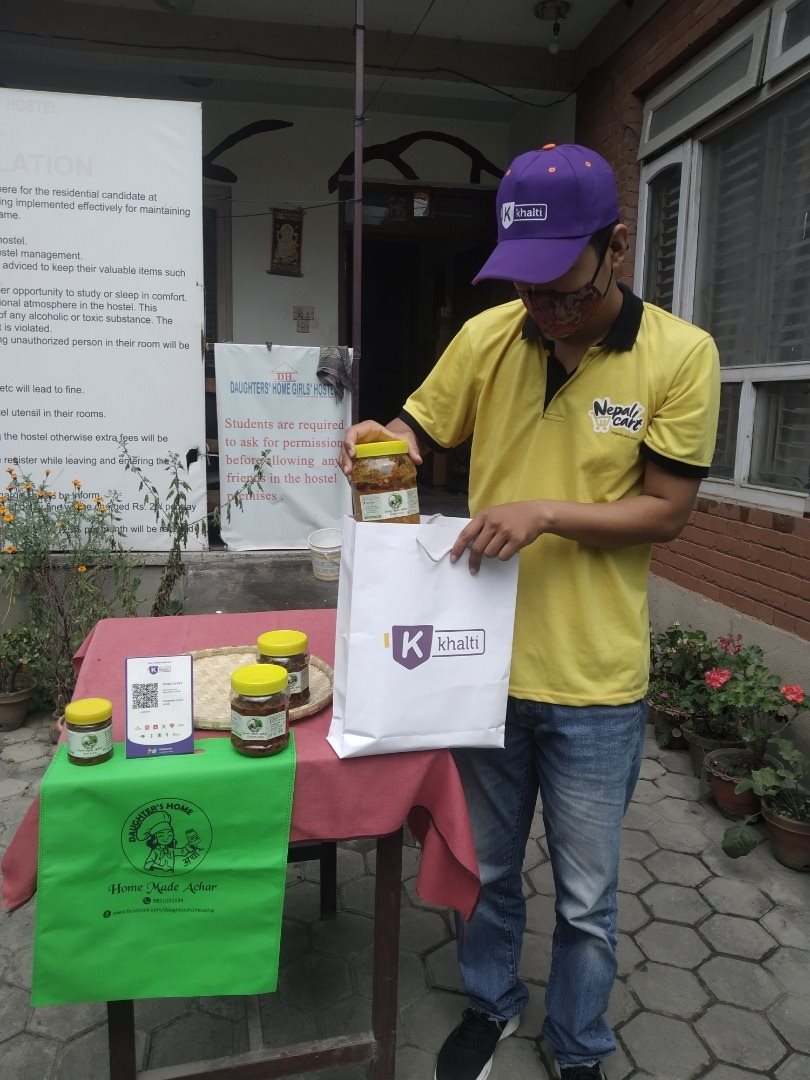
Khalti Representative picking up orders @ Daughters' Home
Results
Partnering with payment service provider for the development of an e-commerce platform has proved to be an effective model. MSEMs effectively navigated the challenges of COVID-19 and found new or alternative sources of revenue thanks to digital transactions. The 688 onboarded MSMEs, out of which 239 enterprises are women-owned, conducted more than 213,000 DFS transactions. That means an additional revenue amounting to nearly US$ 640,000 for these MSMEs.
With support from UNCDF, Khalti successfully completed the project on 30 April 2021. At the end of the project, there were 688 MSMEs on the platform with 338 of them actively offering services through Khalti Bazaar to 4,227 customers. Over a period of eight months, these businesses processed 20,627 online orders from customers. Even though the project has officially ended, Khalti is expanding its reach to add more MSMEs and customers through new marketing campaigns targeted towards the use of QR codes.
As of September 2021, Khalti onboarded 752 MSMEs and registered more than 10,000 customers to the Nepali Cart platform. They have also trained 1,622 people to use the digital platform, thus enhancing their digital literacy.
Acknowledgements
This work would not have been possible without the generous support of USAID and ILO who funded the project. Special thanks to Khalti for their partnership and for their contribution to the successful implementation of the pilot project. This story is developed as a part of the project’s learning agenda to understand the impact of the project.
